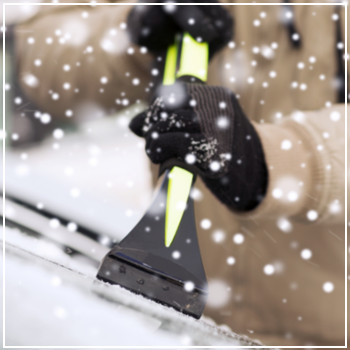 Driving in snow and ice is dangerous, but leaving your car parked all winter isn’t much better. Cold weather can damage your vehicle in many ways, from stiffening fluids to making tires less effective. Here’s what you need to know to keep your car running smoothly through the season.
Driving in snow and ice is dangerous, but leaving your car parked all winter isn’t much better. Cold weather can damage your vehicle in many ways, from stiffening fluids to making tires less effective. Here’s what you need to know to keep your car running smoothly through the season.
Tires
When temperatures drop below 44°F, your all-season tires start to lose flexibility. This makes them less effective on icy or snowy roads. Additionally, tire pressure decreases as it gets colder — for every 10°F drop, your tires lose about 1 psi. If you don’t check and adjust the pressure regularly, underinflated tires can wear unevenly, increase the risk of blowouts, and reduce traction, especially on slippery surfaces.
Fluids
Cold weather thickens engine oil, transmission fluid, and antifreeze, which can make them less efficient. Before driving, it’s a good idea to let your car warm up for 10 to 15 minutes to help the fluids flow more easily. Otherwise, they may cause damage to internal parts over time. At the start of winter, check all fluid levels and top them off if needed. If any fluid looks cloudy or dirty, have it changed. Consider using a lighter oil grade or adding an engine block heater to improve starting in extreme cold.
Antifreeze is especially important — never use plain water or diluted mixtures. Pure antifreeze helps prevent freezing and protects your engine from damage caused by expansion.
Engine
It might be tempting to turn on the heater right after starting your car, but this can actually slow down the warming process. Wait at least 20 minutes before using the heater to allow the engine to reach optimal temperature. Using the heater too soon can lead to inefficient fuel use and longer warm-up times.
Windshields and Wipers
Extreme cold can crack your windshield if you pour hot water on it — a common mistake people make. Instead, use an ice scraper or an alcohol-based de-icer. Also, high heat from the defroster can damage the glass, so use it carefully. In freezing conditions, your wiper blades may freeze to the windshield. To avoid damage, tilt them away from the glass or remove them if an ice storm hits.
Battery
Car batteries struggle in cold weather. They perform best between 30°F and 90°F, and if yours is over three years old, it may not hold a charge well in freezing temperatures. Have your battery tested at the start of winter. If it's weak, consider replacing it. Storing your car in a garage or climate-controlled space can also help maintain battery health.
Leaking
Thickened fluids can damage seals, but another issue to watch out for is condensation. When your car moves between warm and cold environments, moisture can build up inside the system. This moisture can freeze, causing blockages and leaks in power steering, brake, and transmission systems. Flushing old fluids at the start of the season can help prevent this problem.
Corrosion
Even when parked, your car is exposed to road salt and moisture, which can lead to rust and corrosion. Over time, this can weaken structural components and damage the undercarriage, wheel wells, and brakes. To protect your car, have it rustproofed at the beginning of winter and regularly wash off salt deposits, especially from the underside.
Whether you need your fluids topped off, a battery replaced, or rustproofing, DaSilva’s Auto Body is here to help. Give us a call today to schedule an appointment and ensure your car is ready for the winter ahead.
Manual Sealing Machine,Manual Can Sealer,Manual Sealer,Manual Pouch Sealing Machine
Hangzhou Jingyi E-commerce Co.,Ltd , https://www.jypackmfg.com